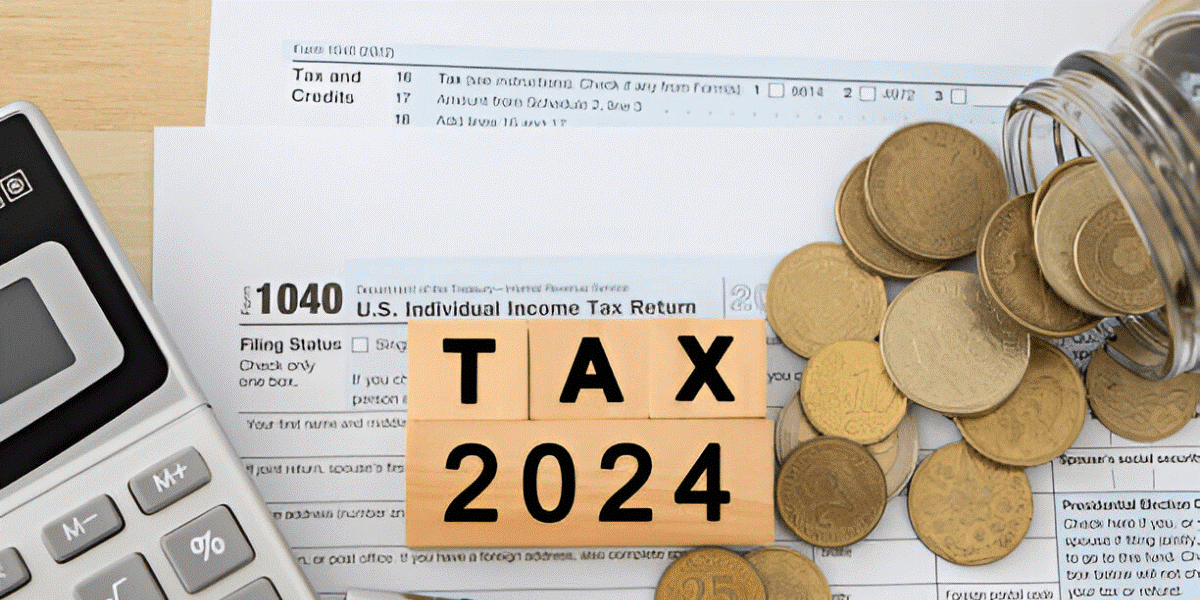Tax Cuts | Explained From Tax App's POV
In the ever-evolving world of taxation, understanding the ramifications of policy shifts is essential for both individual taxpayers and corporate entities. The forthcoming Stage 3 tax cuts in Australia, scheduled to take effect in July 2024, signify a substantial transformation in the fiscal framework.
Through this detailed guide, we at Tax App will help you examine the intricacies of these modifications, so keep on reading!
Understanding The Stage 3 Tax Cuts:
Initiated by the Federal Government and phased in since 2018, the Stage 3 tax cuts aim to simplify the tax system and address bracket creep. These changes follow the Stage 2 updates, which adjusted various tax thresholds and rates. The core of Stage 3 involves abolishing the 37% tax bracket and reducing the 32.5% bracket to 30%, impacting those earning between $45,001 and $200,000. This 'flattening' reduces the number of tax brackets from five to four.
| Aspect | Details |
|---|---|
| Implementation Date | 1 July 2024 |
| Changes in Tax Brackets |
|
| Impact on Income Groups |
|
| Fiscal Implications | Estimated reduction in tax revenue by $320 billion over a decade |
| Effect on Bracket Creep | While addressing some aspects, the cuts do not fully resolve bracket creep issues, as tax brackets are not indexed to inflation or wage growth |
| Proposed Alternatives | Suggestions include adjusting tax rates and thresholds differently to provide more equitable relief across various income levels |
| Economic Context | Occurring amidst rising living costs and interest rates, affecting spending power and savings |
| Planning Recommendations | For higher earners: Consider investing additional income, reducing debts, and enhancing savings and retirement plans. For others: Review financial strategies in light of changes. |
The Impact On Taxpayers
The Stage 3 tax cuts create a substantial shift in the distribution of tax burdens. For middle to high-income earners, the changes are favourable, leading to a noticeable increase in take-home pay. For instance, individuals earning $120,000 will see their tax bill reduced, enhancing their disposable income. Conversely, for those earning around $45,000, the impact is negligible.
Controversies And Criticisms
Despite their intent to simplify taxation, these cuts have sparked debate. Critics argue that they disproportionately benefit higher-income earners. For example, an individual earning over $200,000 stands to gain significantly more in tax savings compared to someone at the median income level. This shift has raised concerns about the progressivity of Australia's tax system and its ability to address inequality.
Tax App's Analysis
From our perspective at Tax App, these changes represent both opportunities and challenges. On one hand, the simplification of tax brackets could make tax planning and compliance easier for many Australians. However, the potential for increased inequality cannot be overlooked.
Long-Term Fiscal Implications
It's crucial to consider the broader economic impact. The Parliamentary Budget Office estimates a $320 billion reduction in tax revenue over a decade due to these cuts. This reduction could constrain the government's ability to fund key programmes and respond to future economic challenges.
Bracket Creep: Unresolved Issues
One of the stated goals of the Stage 3 tax cuts was to address bracket creep, where inflation pushes taxpayers into higher tax brackets. However, without indexing tax brackets to inflation or wage growth, bracket creep remains a concern. Taxpayers may find themselves paying a higher average rate of tax over time despite the new structure.
Striking A Balance: Alternative Proposals
Given the political sensitivity and fiscal implications of scrapping the Stage 3 cuts outright, alternative measures have been proposed. These include adjusting the existing tax rates and thresholds to provide more balanced relief across different income levels. For example, reducing the 32.5% rate to 29% for incomes between $45,001 and $120,000 could offer a more equitable distribution of tax benefits.
Tax App's Tools And Resources
At Tax App, we're committed to helping our users navigate these changes. Our updated tailored consultations are designed to provide personalised insights into how the Stage 3 tax cuts will impact your finances. Whether you're an individual taxpayer or a small business owner, our resources can help you plan effectively for the future.
Preparing For Change: Maximising Benefits Of The 2024 Tax Cuts
Strategic Investment and Wealth Growth
With the Stage 3 tax cuts set to increase disposable income for higher earners, strategic investment becomes a vital consideration. This extra cash flow opens doors to diversified investment opportunities - from stocks and bonds to real estate and emerging technologies. Smart investment decisions can not only grow personal wealth but also contribute positively to the broader economy. It's essential to assess risk tolerance, investment goals, and market conditions to make informed choices that align with long-term financial objectives.
Debt Reduction and Financial Stability
The additional income also provides a prime opportunity to tackle personal debts more aggressively. Prioritising high-interest debts like credit cards or personal loans can lead to substantial interest savings and improved credit health. This proactive approach to debt reduction not only alleviates financial burdens but also paves the way for a more secure financial future. In an economic environment marked by uncertainty, reducing liabilities is a step towards enduring financial stability.
Enhanced Savings and Future Planning
Finally, the tax cuts offer a chance to bolster savings and retirement plans. In the face of rising living costs and interest rates, building a robust savings buffer is more important than ever. Increasing contributions to superannuation funds or other retirement vehicles can ensure a more comfortable and secure retirement. Additionally, establishing an emergency fund can provide a safety net against unforeseen financial shocks, ensuring peace of mind in turbulent economic times.
The Broader Picture
Beyond individual implications, these tax cuts play a role in the larger economic context. They come at a time of rising living costs and interest rates, which affect spending power and saving habits. Understanding these dynamics is key to making informed financial decisions.
End Note
The Stage 3 tax cuts mark a significant shift in Australia's tax regime, bringing both benefits and challenges. While they simplify the tax system and offer relief to many taxpayers, concerns about equity and long-term fiscal sustainability remain. As we move closer to their implementation, staying informed will be crucial for effective financial planning and decision-making.
Partner With Tax App
Tax App is your trusted partner in navigating the complexities of taxation. With our cutting-edge tools and expert insights, we empower you to make informed financial decisions in a changing tax environment. Get in touch with us today[1] to learn more about how we can help you not only understand but potentially benefit from tax cuts.
Disclaimer:
The content of these blog posts is intended to be of a general nature and should not be construed as tax or any other form of advice. We do not guarantee the accuracy or completeness of the information provided in these blog posts. It is imperative that you consult with a qualified professional, such as a certified accountant at Tax App, before taking any action based on the advice or information contained herein. Your specific financial and tax situation may require personalised guidance, and a professional consultation is recommended to ensure compliance with applicable laws and regulations.
Get Started with Us
Connect with Australia’s most innovative accountants today. Fill out our contact form, and let’s discuss how we can help you achieve your financial goals. Together, we’ll create a tailored action plan that maximises your tax savings.
Awards!
⭐⭐⭐⭐⭐















